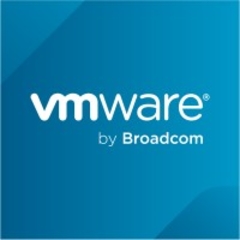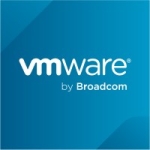What is our primary use case?
I have worked in education and production in one of my previous companies with VMware Workstation. In my current company, I use VMware Workstation for personal use. I have used the solution since my company has a personal server, which is not an extra production server.
How has it helped my organization?
VMware Workstation is something that I have used on my laptop, while at times I have used the solution for testing process purposes, with Linux, Windows, and servers. I have used VMware Workstation for testing purposes in the production environment.
What is most valuable?
The most valuable feature of the solution stems from the fact that it is an easy-to-use product. VMware Workstation is useful for safety purposes. With VMware Workstation, you can easily select CPU hardware or hard disk and install them to the solution. In general, the product allows easy installation with any hardware specifications. If you select a 3 GB or 15 GB hard disk, you can select it.
What needs improvement?
VMware Workstation uses more resources like CPU and disk space, especially the CPU, which is a shortcoming that needs improvement.
Buyer's Guide
VMware Workstation
December 2025
Learn what your peers think about VMware Workstation. Get advice and tips from experienced pros sharing their opinions. Updated: December 2025.
880,685 professionals have used our research since 2012.
For how long have I used the solution?
I have been using VMware Workstation for six months.
What do I think about the stability of the solution?
The stability of the solution depends on the solution's license. If you opt for a license purchased from VMware Workstation, then it remains very stable. The unlicensed version of the solution is not very suitable or stable.
What do I think about the scalability of the solution?
Based on what I have seen, I rate the solution's scalability a seven out of ten.
I didn't use the licensed software version of VMware Workstation, because of which I can't comment on its efficiency.
Though I am unsure, I feel that six to seven users use the solution for their personal use in my company.
Currently, I don't plan to use the version offered by VMware Workstation.
How are customer service and support?
I did not directly contact VMware Workstation's support person since I could get all the answers to my questions through VMware's blogs.
Which solution did I use previously and why did I switch?
I have moved from VMware Workstation to Oracle VM VirtualBox since I got to use it for free, while VMware Workstation wasn't a free option.
How was the initial setup?
I rate the initial setup a six and a half out of ten. The initial setup of the solution is not complicated, but it may not be stable or as good as it should be if you use the tool without VMware Workstation's license or licensed software.
The solution is deployed by enabling virtualization on my laptop.
The time taken for the deployment depends on the size of your operations. The installation of VMware Workstation only takes around 20 to 30 minutes.
For deployment steps, download the free version of VMware Workstation for all the licenses, and then by clicking the next options available after clicking the EXE file, we can install the solution. You get around 60 days to use the free version of the solution, after which you need to pay for VMware Workstation.
What's my experience with pricing, setup cost, and licensing?
I use the free version of VMware Workstation.
What other advice do I have?
I have stopped the use of ESXi in VMware Workstation.
It is important to note that VMware Workstation may not be a good solution for my company since it is not a perfect solution.
I don't personally recommend VMware Workstation to those planning to use it since it is a type 2 hypervisor. It is always better to use a type 1 hypervisor, but if someone prefers to use a type 2 hypervisor, then it is always best to choose the paid or licensed version of the solution.
I rate the overall solution a seven out of ten.
Disclosure: My company does not have a business relationship with this vendor other than being a customer.



















